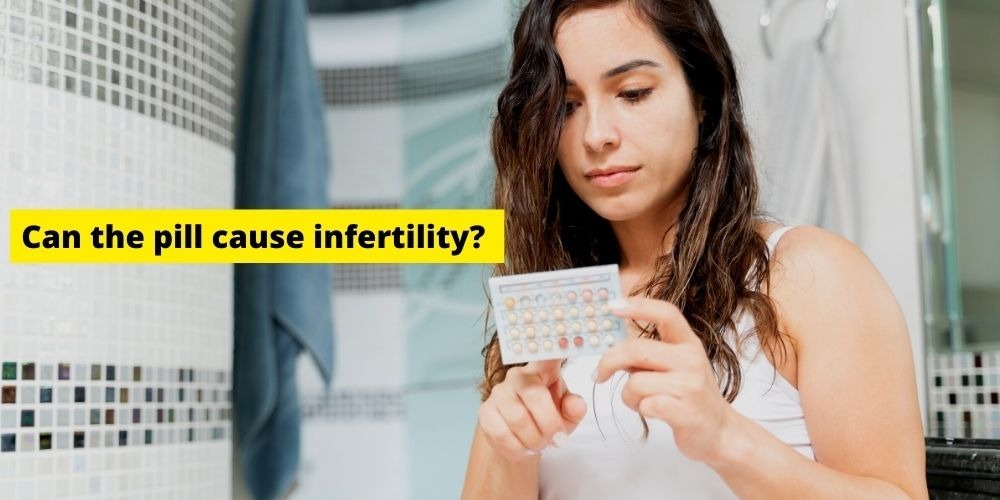When trying to get pregnant, you can read online all kinds of dos and don’ts on whether birth control pills can affect infertility. With so many tips and warnings, it can be difficult to decipher the difference between what’s real and what’s fake.
One of these hotly debated fertility topics is: “do birth control pills cause infertility in the future?”
The short answer is, for the most part, your fertility is probably not affected by birth control. Like anything in medicine, however, it depends on your specific circumstances.
Birth control pills don’t cause infertility, and sometimes they can actually decrease the risk of infertility.
The claim that birth control pills cause infertility is largely a myth. A 2018 study of almost 15,000 women showed that 83.1% of them were able to become pregnant within 12 months of discontinuing birth control, regardless of the form of contraception they used.
With this fertility myth debunked, (want to read some other fertility myths, click here) it’s worth discussing how birth control pills actually affect infertility.
Many women can actually be protected by birth control and decrease the risk of infertility. If you have endometriosis (a condition where uterine lining tissue is found outside the pelvis) every time you have a period, you are potentially creating new diseases in the pelvis. Birth control can prevent endometriosis from progressing, which is a positive for many women for their long-term fertility.
For Polycystic ovary syndrome (PCOS), high levels of androgen hormones (a male hormone) in females can lead to weight gain. Birth control pills can help avoid that weight gain and can help potentially improve fertility as well as safety for future pregnancy.
The American College of Obstetricians and Gynecologists (ACOG), states that “there is no cure for PCOS. But birth control pills can be used for long-term treatment in women who do not wish to get pregnant. The type of birth control used for treating PCOS is combined hormonal birth control pills, meaning the pills contain both estrogen and progestin.”
Birth control can mask fertility issues in rare cases
Much of the concern that taking birth control pills cause subsequent infertility is not that a woman was taking the pills, it was why. Let’s say there’s a teenager with irregular cycles who happens to have primary ovarian insufficiency (POI), a rare condition that affects one in ten thousand women. For most people having irregular cycles, it’s just the brain and ovaries finding the right balance.
But for those with POI, taking birth control could mask the underlying issues. All of a sudden twenty years later when a woman with POI comes off birth control, they find that ovarian failure had been missed or masked for those twenty years, which is obviously a problem.
It wasn’t the birth control pills that caused infertility; they were just preventing the woman from being aware of an underlying problem.
Similarly, some women take birth control pills to treat fibroids or polyps, which is usually not an issue in adolescence but rarely can be the case. If the fibroids or polyps progress while a woman is on birth control medication, that can actually throw fertility off in the long run.
Another important component that could hinder future fertility involves contraception and STDs. If a woman is having sex and she is not using barrier contraception, she could potentially or is more likely to get STDs. ACOG states that “barrier methods of birth control act as barriers to keep sperm from reaching the egg. Some barrier methods also protect against sexually transmitted infections (STIs).”
If you have a sexually transmitted infection from not using barrier contraception, that wasn’t the birth control pill that gave it to you, it was the fact that you were exposed to an STD. Many women stop birth control pills thinking that resolved all their issues, but not using barrier contraception could leave you susceptible to STDs, and, as a result, fertility issues.
Birth control by itself is generally harmless to fertility
As we’ve seen in these various scenarios, it was not the birth control pills that caused infertility. Rather, there were underlying medical issues that existed before the pills. Some people argue there are subtle, direct effects beyond that. You could find a study that tortures data until it confesses and shows there’s an independent risk, but in reality, the risk is extremely subtle. Most of the driving factors are really from the other issues that we’ve mentioned.
While these underlying factors are very important to consider, for the most part, women shouldn’t feel guilty for taking birth control pills or worry about it scarring their future fertility. Based on the data or research, they should instead be asking, “Do I have the right diagnosis to be taking these pills?”
Moreover, people blame themselves often, and it’s very important to know that if you have infertility, it is most likely wasn’t the birth control pill that led to it, but you want to get the proper evaluation to see why and what can be done about it. You could even be protecting yourself by taking birth control pills, but you can’t truly know without seeking the guidance of a fertility specialist who can look at all the other variables.
So find a specialist today who can guide you through the process of fertility. Don’t go through the journey alone. Get answers. Get peace. Reach out today.




